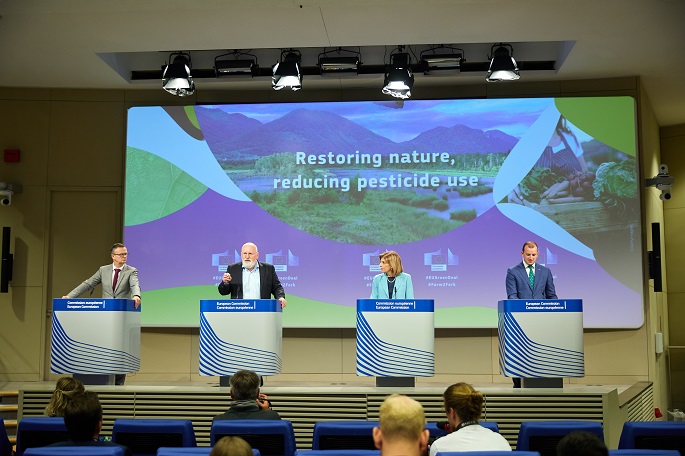EC announces plan to resuscitate strained ecosystems
Published : 23 Jun 2022, 02:32
EU countries would be required to meet binding targets to restore damaged ecosystems so that wildlife can thrive and emissions are reduced under a new legislative package presented on Wednesday.
The European Commission said as it presented the proposal that it hopes it can help restore biodiversity by 2050, in a bid to save wildlife, plantlife and insects under threat of mass extinction.
"The climate and biodiversity crises are threatening the very foundation of our life on Earth," EU Executive Vice President Frans Timmermans said in a statement.
"We humans depend on nature. For the air we breathe, for the water we drink, for the food we eat – for life. Our economy also runs on nature," Timmermans said.
A total of 80% of protected habitats in the EU are currently in poor condition, according to the commission.
Restoration measures are to include: halting the decline of pollinator populations, such as bees, by 2030; removing river barriers; restoring marine habitats; and rewetting drained peatlands so they can absorb carbon instead of emitting it.
Existing EU legislation can sometimes be limited to selected species or habitats. Individual states can easily evade EU rules due to a lack of enforcement.
A 2020 report carried out by the commission concluded that rules for the sustainable use of pesticides first introduced in 2009 have not been consistently implemented.
The EU’s executive branch now announced it wants to slash the use of pesticides in the European Union by 50% by 2030 by introducing binding targets.
Under the new plan, EU countries are to work out plans for how they want to meet their targets and remove chemical pesticides from the market and develop and promote less harmful alternatives.
According to commission plans, the phase-out could be financed with funds from the Common Agricultural Policy (CAP), the bloc's flagship agricultural subsidy scheme to reduce the environmental impact of farming.
Justifying the proposals, Timmermans said "the world has changed."
"I think there is no one in Europe who doesn't feel personally the effects of the climate crisis and the biodiversity crisis," he added.
Conservative EU lawmakers criticized the proposal because it was introduced in the midst of the war in Ukraine, fearing that it would lead to a decline in agricultural production in the EU when production should be increased.
The German Farmers' Association echoed similar concerns.
The commission said that numerous studies showed that farmers can reduce pesticides and save money without endangering crop yields.
The need to restore nature should not be neglected in view of the consequences of the war in Ukraine, since healthy ecosystems are a guarantee for food security, Timmermans said.
The new proposals will be submitted to the 27 EU member states and the European Parliament, all of which must agree before new legislation can be adopted.


